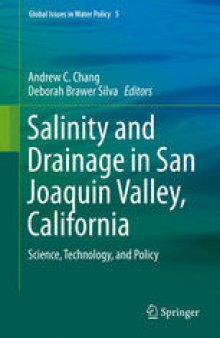 جزییات کتاب
جزییات کتاب
This book documents the history of irrigated agriculture and drainage in the San Joaquin Valley, and describes the hydrology and biogeochemical processes of salts and selenium, remediation technologies for salts and trace elements and policy and management options. The contents are comprised of fourteen chapter-length independent treatises, each depicting with fresh perspective a distinctive salinity drainage topic. The opening chapters detail the evolution of irrigated agriculture, and depict the geochemical and hydrological processes that define the San Joaquin Valley, including the physics, chemistry, and biology attributes that impact water management policies and strategies. Next, the contributors address the biogeochemistry of selenium, the role of plants in absorbing it from soils, and the processes involved in retaining and concentrating dissolved salts in drainage water. Further chapters describe on-farm and plot-level irrigation provisions to reduce agricultural drainage outputs and examine their effects on plant performance. This volume offers realistic policy analysis of water management options for irrigated agriculture in the Valley and assesses their respective outcomes, if implemented. Also included is an international perspective on the sustainability of irrigated agriculture there.



 دانلود کتاب
دانلود کتاب

 جزییات کتاب
جزییات کتاب





 این کتاب رو مطالعه کردید؟ نظر شما چیست؟
این کتاب رو مطالعه کردید؟ نظر شما چیست؟
